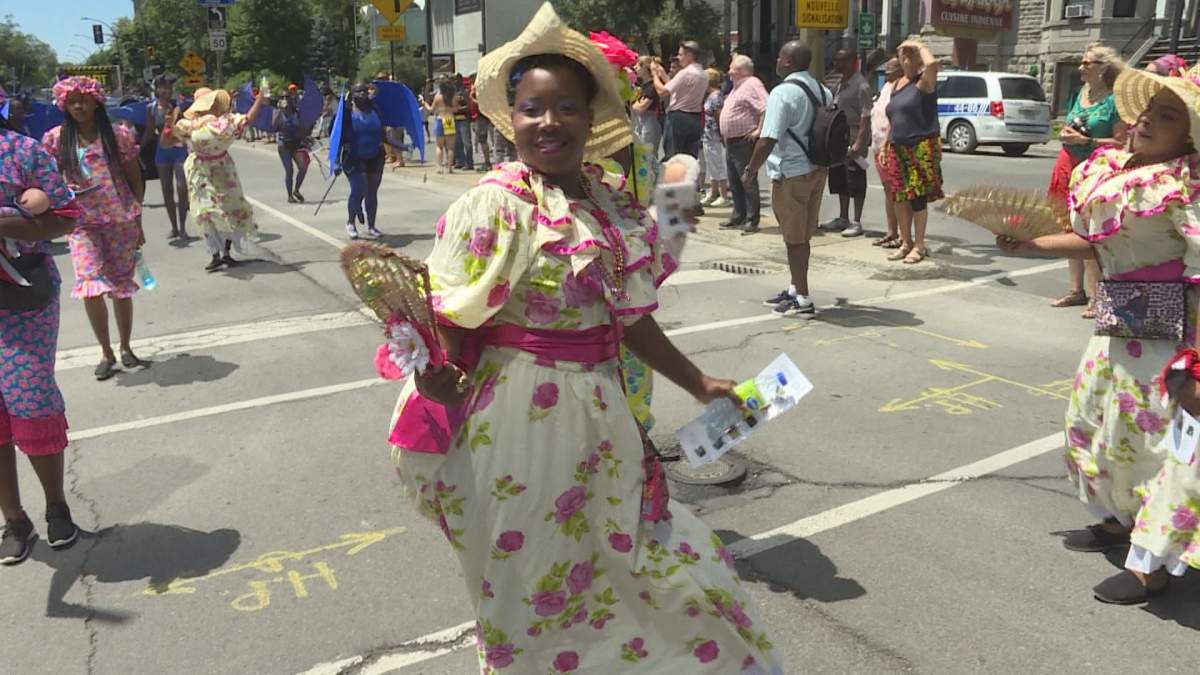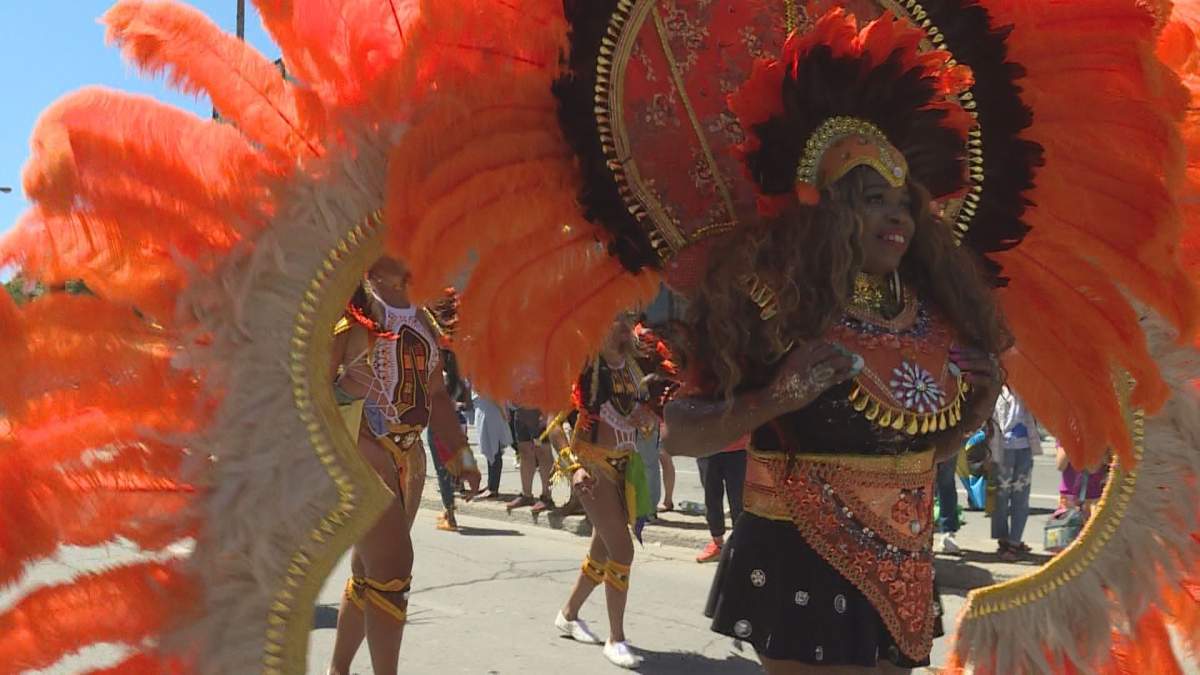What Jab Jab band member Tesfa Peterson chose as a costume for this year’s Montreal carnival for her band, Jab Jab — a body suit and her skin painted with water soluble black paint — isn’t what she’d wear in Grenada, where she has her roots.

“It’s not really a traditional jab outfit,” she explained. “It’s been adapted to Canada, really.
She’d be covered from head to toe in black motor oil, but she says the City of Montreal forbids them from using the oil because it’s hard to clean up from the streets. But others did.
Peterson’s is just one of the groups at the 43rd annual Carifiesta parade, celebrating all aspects of Caribbean culture. This kind of carnival — or “jump-up,” as some people call it — has its roots in the region primarily among slaves and former slaves.
“What it is is a mockery of our colonial masters,” Peterson said.
The name of her band, Jab Jab, for example, comes from the french word “diable,” meaning devil. Members of the band parade wearing horns, some haul or wear animal skulls, and others wear pieces of chain to represent the bondage of slavery — and hell.

Get daily National news
“When we come out on to the street as the devils, we aren’t the devils,” Peterson told Global News. “The devils are the ones being mocked.”
Other participating bands featured several other characters and costumes, too. Some dressed as blue devils, while others mocked the fancy dress of European slave owners by wearing exaggerated forms of formal dress.
But it wasn’t all about poking fun at a colonial past. It was also about letting go and having fun, just for the sake of it.
It’s the kind of tradition organizers say is important to continue, so people don’t forget.
Everiste Blaize is president of the Caribbean Cultural Festivities Association that organizes the parade. “It’s very important,” he said. “It represents our culture. It’s thick in heritage, thick in history and where we come from, so I think we’ve got to educate our kids to keep the thing going.”
For many, it’s also a way of staying in touch with where they are from, and showcasing their culture proudly in the city they now call home.
“We are part of the city,” Peterson stresses. “It’s important the Caribbean people can can come down into the heart of the city, and showcase to Montrealers that we are here, we are part of the fabric of Montreal.”
She wants the city to know that the carnival, or Carifiesta, is part of Montreal, too.








Comments